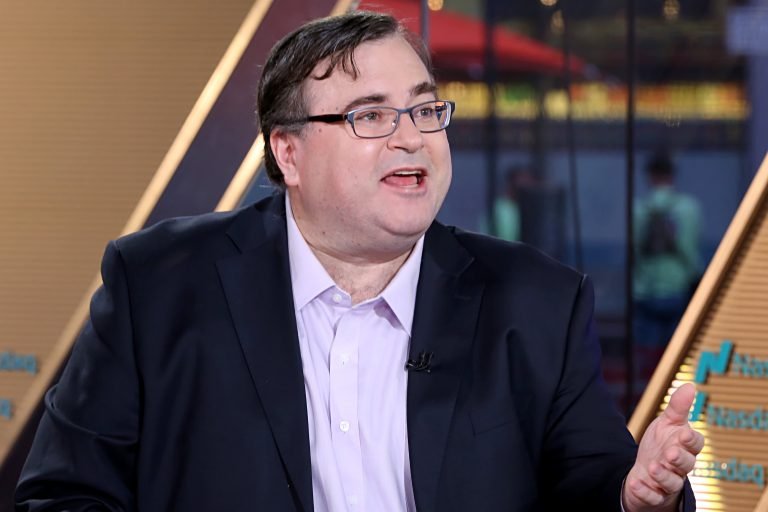
Programming word: Greylock’s Reid Hoffman and Sarah Guo communicate on innovation acceleration and the post-pandemic disruption of labor on the CNBC @Work Summit on March thirtieth. Register now.
Reid Hoffman, co-founder of LinkedIn, is once more investing in the way forward for work, this time, post-pandemic.
Hoffman and Sarah Guo, his fellow associate at enterprise capital agency Greylock, are betting that the transfer by main companies to hybrid work preparations that can emerge after Covid will current alternatives for brand spanking new applied sciences past Slack, Zoom, and Google.
Listed below are just a few of their high concepts.
1. The toughest a part of hybrid work can be firm tradition
Whereas there’s lots of deal with tech corporations going distant, Guo mentioned it’s extra essential to notice that the majority main companies, together with icons corresponding to Ford, are speaking concerning the transfer to a hybrid strategy.
“Everybody is considering a brand new mode of labor and no one is aware of the reply,” Guo advised CNBC on Thursday.
She is for certain there can be lots of hybrid work preparations and extra assist for distant staff that turn out to be everlasting.
“We’re going from emergency mode to constructing mode and we’re actually centered on the softer stuff,” Guo mentioned. “That can be hardest … constructing tradition and profession development and that is the place we’re investing essentially the most.”
She talked about Greylock portfolio funding Remotion, which has created a “digital workplace” that sits on high of a desktop on a regular basis, holding workers related to the office.
2. Danger of distant staff changing into “second-class residents”
Hoffman mentioned innovation for a post-pandemic work world will flip to invention of recent workflows and work processes.
Coda, which Greylock invested in effectively earlier than the pandemic (2017), was designed to resolve the challenges and disconnections which can be concerned within the siloing of particular person work and the work of a group.
New modes of collaboration and productiveness can be wanted, however there’s additionally a danger that staff not truly within the bodily workplace turn out to be “second-class residents,” Hoffman mentioned. “We want to verify everyone seems to be within the room the place it occurs.”
3. Gig economic system labor points require new considering
Hoffman says the period of start-ups that grew the primary era of the gig economic system could have “fumbled” labor points, however he doesn’t assume a return to the “previous mechanism” is the precise transfer for the labor market.
Hoffman mentioned “future innovations” that the gig economic system must innovate on embrace methods for gig staff to obtain advantages for accrued hours, credit score for having a stable repute, and different elements that ought to turn out to be moveable for staff in creating profession paths throughout employers.
Gig economic system corporations have to make to verify staff get not solely the flexibleness they need, however a system that has constructed into it a profession development, and security and well being advantages. However that doesn’t imply going again to a former labor market assemble both, Hoffman mentioned.
4. Moore’s Legislation is being reborn for large computing modifications
Intel’s new CEO introduced a large funding earlier this week in new chip manufacturing crops and Hoffman says it’s the proper wager, whatever the critics.
Whereas the so-called Moore’s Legislation that dictated the exponential enhance of laptop chip capabilities has ended relative to desktops and servers, Hoffman says the following chip period is beginning and Moore’s Legislation can be reborn to chase it. The large information farms which have already been constructed will subsequent require large servers and specialised chips that can be crucial to the AI transformation of industries together with precision drugs, schooling and leisure.
“The AI transformation throughout industries would require a large quantity of computing,” Hoffman mentioned, and he added that ought to give corporations like Intel a excessive diploma of certainty when making multi-billion-dollar capital investments.